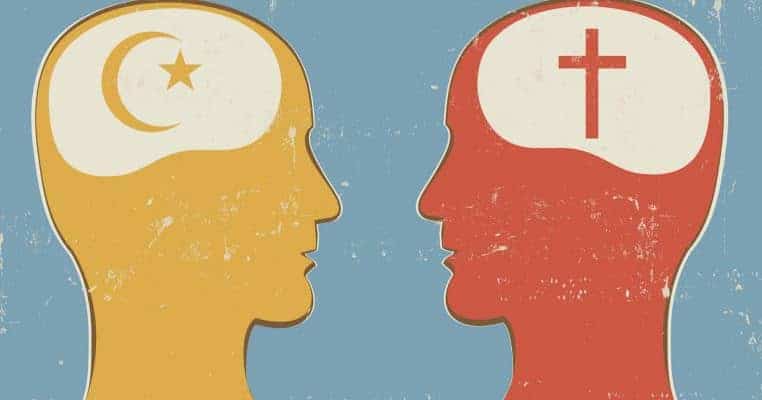The so-called Abrahamic religions, also referred to collectively as Abrahamism, are a group of Semitic-originated religious communities of faith that have their roots in the practices of the ancient Israelites and the worship of the God of Abraham. The Abrahamic religions are monotheistic faiths from West Asia that revolve around and accept the tradition that God revealed himself to Abraham. Abrahamic religion spread globally through Christianity being adopted by the Roman Empire in the 4th century and Islam by the Islamic Empires from the 7th century.
The story of Abraham and his sons is told in the Genesis and the Qur’an but with certain differences, with Muslims emphasizing Ishmael as the older son of Abraham, and Jews emphasizing Isaac as the favorite son. Christians and Jews are commonly referred to by Muslims as “People of the Book”—people who follow the same general teachings in accord with the worship of the one God as known by Abraham.

Origin of the Term “Abrahamic” Religions and Its Challengers
Historians suggest that Louis Massignon, a Catholic scholar of Islam and a pioneer of Catholic-Muslim mutual understanding, was the first who used the term “Abrahamic religion” to categorize all these religions that come from the same spiritual source. Furthermore, Paul the Apostle referred to Abraham as the “father of us all,” while there is a Quranic term, millat Ibrahim, which translates to “religion of Ibrahim” and indicates that Islam sees itself as standing in a tradition of religious practice from Abraham.
The suitability and propriety of listing Judaism, Christianity, and Islam by the terms “Abrahamic religions” however, has been criticized and challenged throughout the years. Alan L. Berger, Professor of Judaic Studies at Florida Atlantic University, mentions in his Preface to Trialogue and Terror,
Judaism, Christianity, and Islam after 9/11 wrote that there are “commonalities”, but there are essential differences between the Abrahamic traditions” both “historical and theological. Although Judaism birthed both Christianity and Islam, the three monotheistic faiths went their separate ways. The three faiths understand the role of Abraham in differing ways, and the relationships between Judaism and Christianity and between Judaism and Islam are “uneven”. Also, the three traditions are demographically unbalanced and ideologically diverse.
Furthermore, Aaron W. Hughes published a book in 2012 about the category Abrahamic religions as an example of “abuses of history.” He mentions among others,
It is largely a theological neologism and an artificial and imprecise term. Combining the Jewish, Christian, and Muslim religions into this one category might serve the purpose of encouraging interfaith trialogue, but it is not true to the historical record. Abrahamic religions is an ahistorical category. There are certain family resemblances among these three religions, but the amorphous”term Abrahamic religions prevents an understanding of the complex nature of the interactions among them.
For these and other reasons, Hughes argues that the term should not be used, at least in academic circles.

